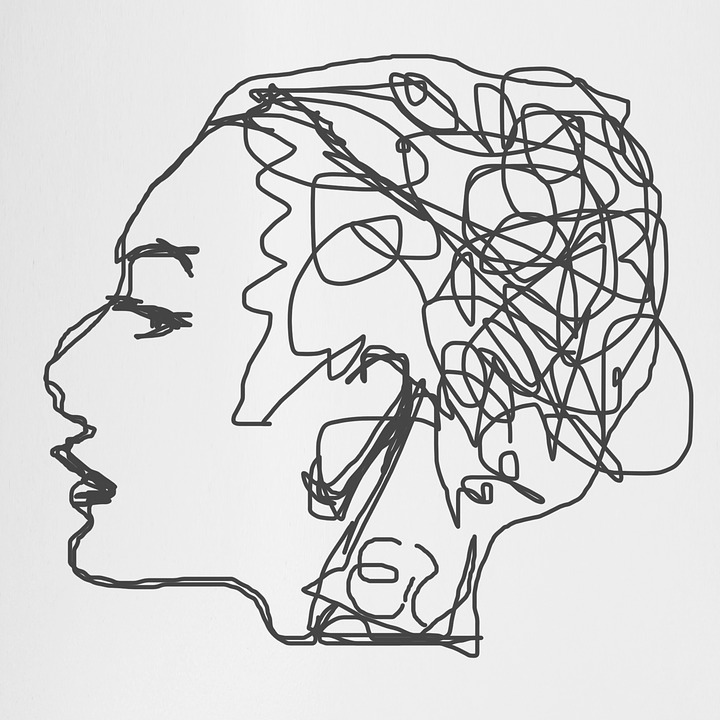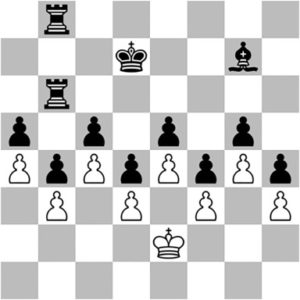

Steven Scholte

Han van der Maas
Steven Scholte’s (Brain and Cognition) question
Dear Han,
You are a great expert of intelligent systems. Also, you are very knowledgeable about chess related research. How has your view on chess (as a model of cognition/problem solving) changed in the last 20 years? Has this altered your view of Good Old Fashioned Artificial Intelligence?
Steven
Han van der Maas’ (Psychological Methods) answer
Dear Steven,
To understand the history of and progress in the study of human and artificial intelligence (AI) specific insight in the case of chess is very helpful. The PhD thesis research on human chess thinking by Prof dr. A.D. de Groot, one of the most important Dutch psychologists of the last century and founder of the Psychological Methods group, played a noteworthy role in the cognitive revolution in psychology. At the same time, building a chess playing computer was a main goal of early AI. The outcomes of the latter efforts were amazing and disappointing at the same time. Amazing as very strong chess programs were developed, even beating the world champion Kasparov in a famous match in 1997. Disappointing as the developed system operated in ways very different from human chess. We still do not know much about how humans play chess, but they do not tend to compute many moves in chess and are able to evaluate chess positions in very advanced ways. For instance, in his last papers A.D. de Groot focused on concepts such as intuition.
In contrast, the chess programs of that time depended on the superficial evaluation of millions of chess positions per second. Also, these programs were not able to learn from their games. They were what Daniel Dennett called cognitive wheels. What Dennett meant with this was that if biologists, interested in methods of movement in biological systems, invent the wheel, they invented something useful but not something that actually exists in nature. The AI chess programs of the last century did exactly this, they move (play chess) but not in the way humans do. Personally, at that time, I gave up on the idea that human-like AI chess programs, which could learn and use high level insight in chess positions, would ever be made. Some attempts at learning chess programs were made but with very limited success.
And then the new AI area came. In the last ten years, AI has become the most rapidly developing science with staggering successes. In our recent paper “How much intelligence is there in artificial intelligence? A 2020 update” in Intelligence, we describe this revolution and especially how these recent advances are rooted in psychology.
For me, as a chess player and researcher interested in chess, the appearance of Alpha Zero chess in 2018 came as a real shock. AlphaZero chess uses a deep learning network and reinforcement learning to value positions, to predict next moves, and to play superior chess. The amazing thing is that AlphaZero initially performs badly, but improves during millions of self-played games. Leela Chess Zero, the open-source variant of AlphaZero chess, currently dominates chess rating lists and is known for her original human-like play. These systems are still very different from human chess playing but they bridge the gap between old school AI and human information processing in important ways, as they make use of neural networks and reinforcement learning. However, they still evaluate many more positions that humans do, cannot learn by instruction, and lack understanding (Figure 1).
Fig 1. An anti-computer position. Humans, in contrast to even the best modern computer chess programs, quickly see that black, in spite of its material advantage, can not win.
Whether this lack of understanding is solvable is an open question. It could be said that AI with respect to understanding, in spite of all its successes, has not made any progress. Famous and still relevant is Searle’s Chinese room thought experiment. I do not have a stable opinion on this issue. I am confused on what we mean with understanding and the degrees of understanding in human thinking. I do not know what the next 20 years of AI will bring, but I hope to be surprised again.
Han
Han van der Maas’ question is for Claire Stevenson (Psychological Methods)
Dear Claire,
You also are a great expert of intelligent systems. With regard to the discussion about the difference between learning in AI and human learning, what is the role of one-shot learning?
Han

Steven Scholte’s (Brain and Cognition) question
Dear Han,
You are a great expert of intelligent systems. Also, you are very knowledgeable about chess related research. How has your view on chess (as a model of cognition/problem solving) changed in the last 20 years? Has this altered your view of Good Old Fashioned Artificial Intelligence?
Steven

Han van der Maas’ (Psychological Methods) answer
Dear Steven,
To understand the history of and progress in the study of human and artificial intelligence (AI) specific insight in the case of chess is very helpful. The PhD thesis research on human chess thinking by Prof dr. A.D. de Groot, one of the most important Dutch psychologists of the last century and founder of the Psychological Methods group, played a noteworthy role in the cognitive revolution in psychology. At the same time, building a chess playing computer was a main goal of early AI. The outcomes of the latter efforts were amazing and disappointing at the same time. Amazing as very strong chess programs were developed, even beating the world champion Kasparov in a famous match in 1997. Disappointing as the developed system operated in ways very different from human chess. We still do not know much about how humans play chess, but they do not tend to compute many moves in chess and are able to evaluate chess positions in very advanced ways. For instance, in his last papers A.D. de Groot focused on concepts such as intuition.
In contrast, the chess programs of that time depended on the superficial evaluation of millions of chess positions per second. Also, these programs were not able to learn from their games. They were what Daniel Dennett called cognitive wheels. What Dennett meant with this was that if biologists, interested in methods of movement in biological systems, invent the wheel, they invented something useful but not something that actually exists in nature. The AI chess programs of the last century did exactly this, they move (play chess) but not in the way humans do. Personally, at that time, I gave up on the idea that human-like AI chess programs, which could learn and use high level insight in chess positions, would ever be made. Some attempts at learning chess programs were made but with very limited success.
And then the new AI area came. In the last ten years, AI has become the most rapidly developing science with staggering successes. In our recent paper “How much intelligence is there in artificial intelligence? A 2020 update” in Intelligence, we describe this revolution and especially how these recent advances are rooted in psychology.
For me, as a chess player and researcher interested in chess, the appearance of Alpha Zero chess in 2018 came as a real shock. AlphaZero chess uses a deep learning network and reinforcement learning to value positions, to predict next moves, and to play superior chess. The amazing thing is that AlphaZero initially performs badly, but improves during millions of self-played games. Leela Chess Zero, the open-source variant of AlphaZero chess, currently dominates chess rating lists and is known for her original human-like play. These systems are still very different from human chess playing but they bridge the gap between old school AI and human information processing in important ways, as they make use of neural networks and reinforcement learning. However, they still evaluate many more positions that humans do, cannot learn by instruction, and lack understanding (Figure 1).
Fig 1. An anti-computer position. Humans, in contrast to even the best modern computer chess programs, quickly see that black, in spite of its material advantage, can not win.
Whether this lack of understanding is solvable is an open question. It could be said that AI with respect to understanding, in spite of all its successes, has not made any progress. Famous and still relevant is Searle’s Chinese room thought experiment. I do not have a stable opinion on this issue. I am confused on what we mean with understanding and the degrees of understanding in human thinking. I do not know what the next 20 years of AI will bring, but I hope to be surprised again.
Han
Han van der Maas’ question is for Claire Stevenson (Psychological Methods)
Dear Claire,
You also are a great expert of intelligent systems. With regard to the discussion about the difference between learning in AI and human learning, what is the role of one-shot learning?
Han



